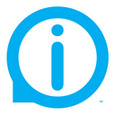In a recent post, I talked about my client, Dale, who is in the craft business. We were on the discussion about his artist bio, and Dale told shared with me his apprehension about talking about himself sound self-important. My suggestion was to him was to focus on marketing himself and less on making himself sound important. Dale thought if he had some business cards and a website that would be enough. That somehow, Dale's artwork would speak for itself.
Dale did not understand the Catch-22 nature of Internet marketing. I put it to Dale simply, "How do you expect people to find your artwork, if you don't talk about it?" Dale said, "Well, I'll just put my artwork on my website." I asked, "How will people find your website?" Dale said, "Won't they just Google me?" I asked, "How will they know to Google you if they don't know you're name? How will they Google you if you haven't done any marketing?" Dale said, "Oh, yeah." Now he got it.
Marketing is difficult for many artists because they are used to speaking through their art rather than through advertisements and artists blubs. You mention marketing, and it is as if they go into a childhood state where they become the shy art kid in high school. It is as if the mere mention of talking about themselves brings memories of being mocked at an early age for their creativity.
There are three main blurbs that every artist should have ready at all times, and especially on their website:
Elevator Pitch: This is a quick blurb that tells anyone you run into what you do for a living, what you sell, and who your target audience is. It should preferably be in one sentence, and possibly within 25 words or less.
Artist Bio: This tells the story of what you do, and why you do it. It should be very short, and is usually about one paragraph. Most importantly, it should tell a story.
Mission Statement: Yes, even an artist should have a mission statement. Although it's not always necessary to publish your mission statement, it's important to know why it is you have chosen the creative field you are in, and what your intentions are with your creative abilities. A mission statement helps you stay focused, and on track with your goals. For a primer on mission statements, I'd recommend the Stephen R. Covey's timeless classic, "The 7 Habits of Highly Effective People."
Framed this way, Dale learned that marketing himself is not about saying what a great artist he is. Dale learned that marketing himself is simply about sharing his vision, his values, and his story.
Young B. Kim is a writer, artist, serial entrepreneur, and the creator of ideavist™. Young's mission is to help people make their ideas happen through his writing, coaching, consultations, and through speaking engagements on ideation, creativity, and entrepreneurship.
Read more of his articles, visit www.ideavist.com

Post new comment
Please Register or Login to post new comment.